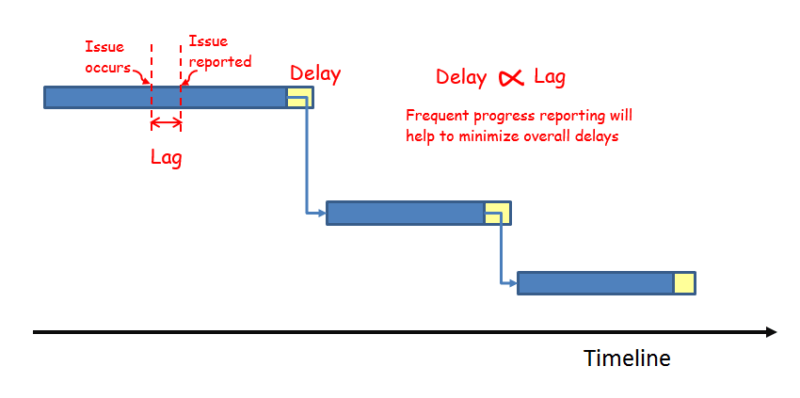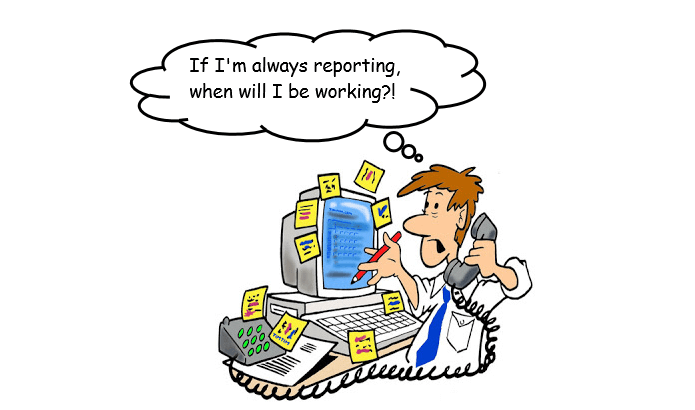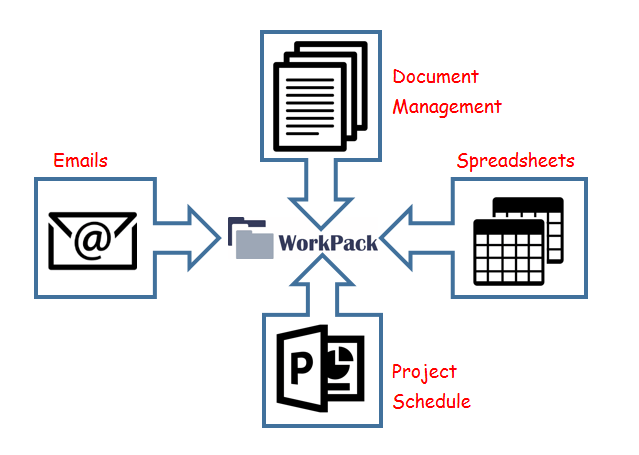Probably the most important responsibility of a project manager is to ensure that the project is completed on schedule and within budget.
As important as it is, keeping the project on track for schedule and budget is not an easy feat. As many as 30-50% of all engineering & construction projects suffer from significant delays and overspending.
Many tools have been developed in recent decades to help a project manager in tracking the project progress and cost so that he can have better control over them. Indeed these improvements have helped in improving the overall efficiency and productivity of project teams.
But even these project management tools have serious limitations. For example, any report coming from a software output is only as good as the data that gets entered into that software. If a project team doesn’t update project progress on regular basis, the software report cannot provide real time insights to the project manager.
Lag in project progress tracking
Even using a sophisticated project management software does not guarantee all progress data will be captured and tracked.
Usually, team members report their work done on weekly or monthly basis. So even if there are any latent issues, they get highlighted only at the end of the month after they have seriously impacted the project schedule for a few days already.
So there is a significant lag in how activities are tracked and reported.
![]()
The lag in reporting progress/issues leads to delay in response from the project manager. By that time the damage is already done.
Creating a continuous feedback loop
If the lag in reporting of problems/issues is minimized, it will ensure a faster response from project management and minimal impact on the project schedule.
Imagine this – when you are driving fast on a highway, you want to spot a speed hump from 100 meters away and not when you’re just 15 meters from it.
Similarly case of projects, the sooner you see a potential problem the better you can prepare for it.

One way to achieve this is to have continuous or near real time reporting of progress updates, instead of weekly/monthly reporting.
This way you will have the latest information of what is happening in a project. So if there is any problem brewing, you can quickly spot it and fix it before it escalates into something bigger.
Tracking the actual work
But it is practically impossible for your project team to be reporting their work on a continuous basis. If they are always reporting, when will they be working?

Instead, use technology to automate this reporting process and make it continuous. So your team can do their work in peace and you can keep a track of what they are doing in near real time.
Reporting can be automated by employing a software to track what your engineers, site managers, purchase managers, store managers are doing.
Even if a software tool cannot physically see the project team and what they are doing, it can still track their work in other ways.
In engineering and construction projects, most the work is getting recorded in various – documents, drawings, emails, spreadsheets, challans, receipts etc. on regular basis.
Consider the following examples –
- All the work done by an engineering team in a project boils down to a set of documents, reports, datasheets, drawings etc.
- Progress of procurement in a project is indicated by RFQs, Purchase Orders sent and Quotations received.
- Logistics can be tracked with challans and receipts submitted at the store.
- Construction progress is reported by the site manager in a spreadsheet at the end of the day
When all these different files and spreadsheets are brought together and linked with the project schedule, it gives you a holistic, real time picture of all that is happening in your project.
Indeed document management is important aspects of engineering & construction projects and mismanaged documents will lead to chaos.
But this can be too much information to track. So you can also use the same software tool to filter out the noise and only report progress related to critical activities/milestones.
Forecast project delays
But all critical project activities are not equally critical. Some activities getting delayed can have a greater impact on overall schedule. But that needs to be carefully forecast and analyzed.
Once again having a platform, which combines progress tracking, documents and project schedule will help you to effectively forecast delays.
So you can have an exact measure of the impact caused by some of the issues that crop up.
WorkPack for forecasting schedule
WorkPack has combined – document management, spreadsheets and emails with project schedule to automate progress tracking in engineering & construction projects.

This has helped engineering & construction project managers from different industries to monitor their projects in near real time on a central dashboard.
Connecting actual progress data with project schedule has also enabled them to forecast project progress based on actual delays.
Do you think WorkPack can help your team as well? Find out by creating a free account.
Let us know if you need any help to set up this free account or if you would like to arrange an online demo session for your team.

No Comments